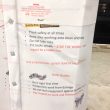Jules is a friend and colleague; she volunteers her time and energy to run FirstSigns with me, and it’s great to have her perspectives on writing and communication here at kilobox communiqué.
I am on holiday in France right now, so it’s great to have a guest post from Jules. Standby for more posts from guest luminaries :)

I’m an impulsive person, passionate, fiercely loyal and quick to anger, which makes for an explosive temperament that I’ve had to learn to control when dealing with other people. Sometimes I get emails that are pure hatred, and there was a time when such things bothered me greatly. I’d get upset and angry, and I’d respond similarly – which only really served to fuel the other person and convince them they were right to tell me what a bad person I am. These days I ignore such things completely. It’s not easy, but instead of getting upset I just laugh at them, quickly click delete and then push them from my mind completely.
Sometimes though, an email will arrive that isn’t so much hatred, as criticism, accusation and aggression. The senders of these emails aren’t deliberately trying to upset me, they are expressing (badly) their concerns and thoughts, and they need a response. Such an email arrived to my inbox this morning.
Anyone following @Wedge on Twitter may remember a few weeks ago he asked how people felt about emails without a friendly salutation. Today’s email just said: Jules. No ‘Hi’, no ‘Hello’ – just Jules. I immediately went into ‘defensive’ mode before I’d even started reading the email. This person didn’t sound friendly, they were shouting at me and I wasn’t expecting nice things.
As it turned out I was right – the email was critical and accusatory, and it made me angry, but my hackles had already been raised so I wonder whether I would have felt quite so bad if the email had begun in a friendlier fashion? Would I have read the email differently if I hadn’t been on the defensive? A year ago I would have responded to the email immediately; I too would have avoided a friendly salutation and my words would have been sharp. But another thing Wedge has taught me is that such situations need time for reflection – and I think I’ve finally learnt how to reflect! He’s also taught me that being nice to nasty people completely unbalances them, and throws water on their fire.
Instead of responding straight away, I closed down my emails, turned everything off and went into town to buy a new rug for my kitchen floor. On returning, I made a cup of tea, took a few deep breaths and sat outside with my iPod to read the email again. This time I was able to read between the lines and through the criticisms, and get to what the person was really asking me. And you know what, it’s really not so bad. The person is clearly confused and ignorant of the subject matter, and has difficulty expressing hir concerns eloquently, which resulted in an aggressive tone. I do know and understand the subject matter, so I’m confident I can respond in a pleasant, understanding, informative and professional manner.
And what’s more, I’m going to be starting my email with ‘Hello’!
[Jules]Photo credit: Randy Son of Robert
About the author
Jules runs the largest eraser emporium in the world (AFAIK) and you can find out more at originalerasers.co.uk – follow @Julesxv or @OriginalErasers on Twitter.
Jules also runs FirstSigns with me, and is a keen writer with an eye for detail like an electron microscope.





